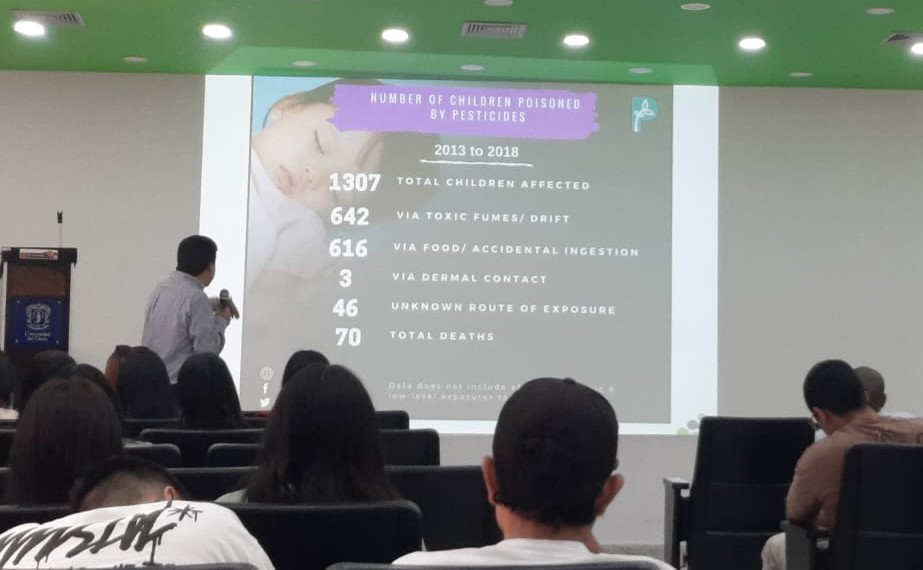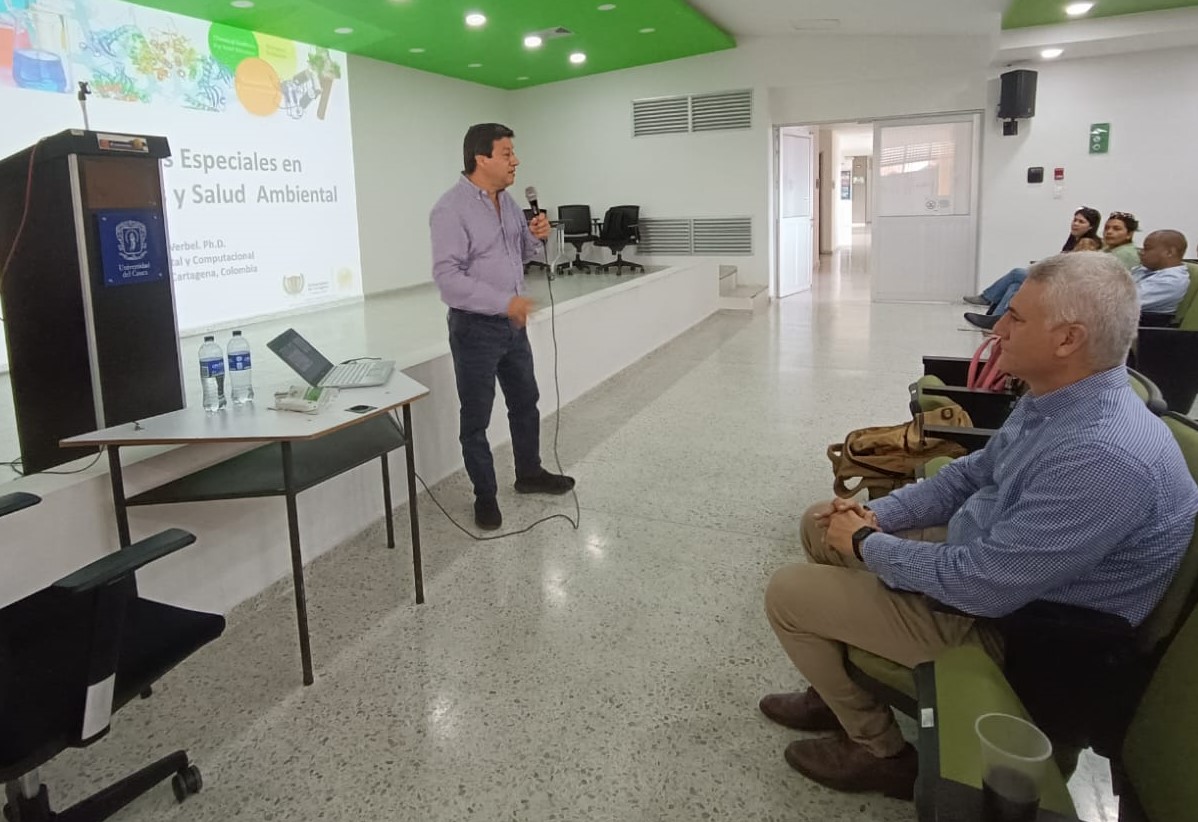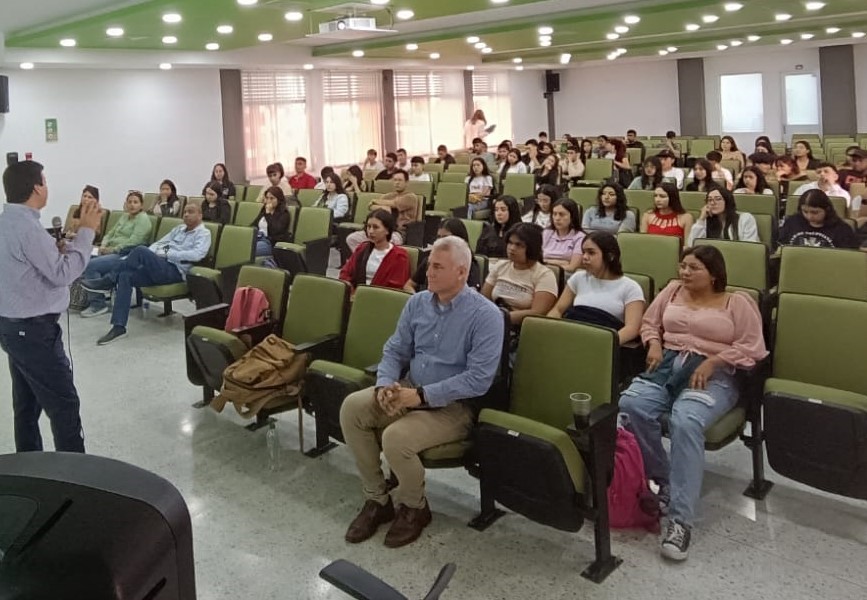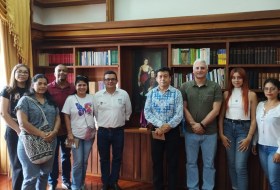News
University alliance leads research project to determine the effects of glyphosate on people's health.
The research project led by the University of Cartagena in partnership with the University of San Buenaventura, the Technological University of Chocó, and the University of Cauca is funded by the Ministry of Science, Technology, and Innovation (Minciencias) and aims to study the effects of glyphosate on human health
As part of a presentation on the project investigating health risks associated with glyphosate aerial spraying, researcher Jesús Oliveros from the University of Cartagena delivered the conference 'Special Topics in Pesticides and Environmental Health.' The discussion focused on the lifecycle of these chemical products, highlighting their negative effects on bees. It was noted that pesticides can disorient and, in extreme cases, kill bees, leading to problems in the food chain, as these creatures are crucial for the availability of much of our food.
Regarding human health, studies were presented showing that individuals with higher levels of pesticide exposure were more likely to develop issues such as Alzheimer’s, Parkinson’s, and damage to the central nervous system. Additionally, differences in neural connections were highlighted, indicating that those exposed had fewer neural connections compared to those not exposed. Cognitive and learning problems were emphasized, especially in the children of exposed mothers, as well as the presence of birth defects and the detection of pesticides in the placenta.

Provided photo
Regarding the common belief that washing fruits and vegetables or peeling them removes pesticide residues, the conference debunked this concept by referring to studies that found significant levels of pesticides inside apples. Additionally, it was emphasized that Colombia is among the top consumers of pesticides, exceeding 10% usage, highlighting the importance of addressing this issue in the country.
The academic event, which took place on February 8 in the auditorium of the Faculty of Accounting, Economic, and Administrative Sciences, facilitated the presentation of the project aimed at developing a research protocol to establish a baseline for assessing the health conditions of the population exposed to glyphosate aerial spraying in the illicit crop eradication program. Therefore, the research is being conducted in the departments of Cauca, Caquetá, Bolívar, and Chocó, specifically in the rural areas of the municipalities of Santa Rosa del Sur, San Vicente del Caguán, Argelia, and Bajo Baudó.

Provided photo
Similarly, the research project arises as a response framed within the Constitutional Court's ruling T-236/17, issued on April 21, 2017. This ruling established specific measures in the event of the reactivation of the Illicit Crop Eradication Program through Aerial Spraying with the herbicide Glyphosate (PECIG) by the National Government. It also indicated that to resume the fumigations, which had been suspended in 2015 under the precautionary principle, measures must be adopted to mitigate risks to human health. This includes conducting scientific research with guarantees of rigor, quality, and impartiality, along with continuous risk assessment in a participatory and technically founded process.
Consequently, Minciencias called for alliances between higher education institutions, research institutes, and centers with current recognition from the Ministry, to develop a research protocol that establishes a baseline on the health conditions of the population exposed to glyphosate aerial spraying in the illicit crop eradication program in Colombia.

According to the project's executive summary, the results of this research will include a health assessment protocol, at least two articles in indexed journals with an impact factor greater than 3, a textbook, two infographics, a video, social appropriation exercises of the results in the examined communities, and an executive summary for the authorities. These results will be crucial not only for informing public policies and sustainable agricultural practices in Colombia but also for contributing to the global body of knowledge on the effects of glyphosate on human health and the environment.
From our University of Excellence and Solidarity, we are proud to be part of significant research that will undoubtedly contribute to the well-being of the population. Building peace goes beyond mere debates and dialogues about conflict, as it encompasses all aspects of human life. Therefore, health plays a fundamental role on the path to peace.
For more information:
Faculty of Civil Engineering
Email: d-civil@unicauca.edu.co


